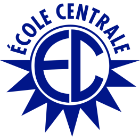Academic and core subjects
École Centrale offers the complete course of study of early years French Immersion programs with the latest curricula from Manitoba Education, and Le bureau d’éducation française.(BEF)
In recent years, teachers have implemented new curricula in physical education/health, social studies and mathematics. This year, teachers will continue to implement Literacy with Information/Communication Technology through year two activities of Technology for Today’s Teaching, and the new curriculum for the arts.
The regular academic program is taught by the homeroom teacher. Physical education and music are taught by specialists in these areas. The library and computer lab are integral resources and support classroom learning. Delivery of programs is designed with the student in mind, respecting learning style, strengths and needs that are unique to each student.
All programs are delivered “en français” with the exception of English language arts and personal safety sections of the health program.
The complete course of study is in accordance with Manitoba’s curriculum expectations. Curriculum requirements and expectations are being implemented as outlined in the Provincial document A Foundation for Excellence. The core subjects are:
- Language arts (English and Français)
- Mathematics
- Sciences
- Social studies
Physical Education/Health
The goal of the new physical education and health program is to insure that all students acquire the knowledge, skills and attitudes to become physically active and to make healthy lifestyle decisions designed to improve their personal quality of life.
Students unable to take part in phys. ed. for medical reasons must have a parent’s/guardian’s note or a doctor’s certificate stating the reason for non participation.
Students in Grades 1 and 2 are expected to wear appropriate gym clothing on their phys. ed. days. Students in grades 3 and 4 are expected to change into a t-shirt for phys. ed. Please send a cloth drawstring bag marked with your child’s name for this purpose. Parents are asked to check that clothing is returned home periodically for laundering. Non-marking runners are the only acceptable footwear in the gym.
To further enhance the physical education/health classroom instruction we offer the following extracurricular activities:
- Perceptual gross-motor development program
- Leadership club
- After school clubs
- Intra-murals
- Recess activities
- Outings
- Divisional activities
Music
Music is a unique intelligence. It encourages effort and self-discipline, develops responsibility and co-operative effort and is a powerful tool in second language learning.
Music is a powerful and profound symbol system which develops critical thinking skills and opens an avenue of success for all students. It’s also a manifestation of culture and heritage and plays an important part in the major events of people’s lives.
Daily music activities may include speaking, singing, listening, moving, dancing and playing instruments. Children have the opportunity to perform individually and as a group at concerts and assemblies. Guest artists are invited to the school at various times during the school year.
Art
Art inspires the development of higher thinking skills and creativity. The Art curriculum is designed to expose students to a variety of activities including drawing, painting, and sculpture. In Early Years, the Art curriculum is integrated across subject areas. Children’s art work is displayed throughout the school year.
The Seven Sacred Teachings
A compilation of traditional Teachings important among north american Aboriginal peoples; with minor variations between the different Nations, these Teachings inform us how to understand ourselves, others, and life. These Teachings are interconnected with each other. Understanding what these Teachings, or cultural values are, and how they are embedded within Aboriginal culture, helps us avoid making assumptions and generalizations.
Resource
École Centrale has the services of a resource teacher at the school. Access to other services such as a reading specialist, occupational therapist, social worker, psychologist, behavioural specialists, and physical therapists are available at the divisional level.
The role of the resource teacher is to facilitate and support the delivery of effective educational programming for all learners. The resource teacher assists and supports classroom teachers and others who work with students in order to: develop and improve programming, recognize students’ strengths, accommodate appropriately for students’ needs, and promote growth in students' learning.
Referrals to the resource teacher follow this process:
- The resource teacher, principal, and classroom teacher (school programming team) collaborate by means of regularly scheduled meetings throughout the year to discuss students’ needs.
- Since parents/guardians are an integral part of a student’s learning, they are consulted and informed about programming for their child.
- Parents/guardians are informed prior to any diagnostic testing taking place with their child.
- The resource teacher may provide direct services that include observation, diagnostic assessment, and teaching.
- The team may also decide to consult with Child Guidance Clinic personnel or other outside services for further input.
- Parents’/guardians’ written approval is required before a student can be seen by specialists from the student services department, such as: physiotherapist, occupational therapist, reading specialist, speech and language pathologist, psychologist, and social worker. The resource teacher meets regularly with parents/guardians of students who are referred.
IPLÉ
IPLÉ is an early, short term intervention to help “at risk” six and seven year old students to learn to read and write in French. Children in IPLÉ are provided with structured “one on one” lessons for 30 minutes each day for approximately 25 weeks with a trained IPLÉ teacher.
 École Centrale
École Centrale